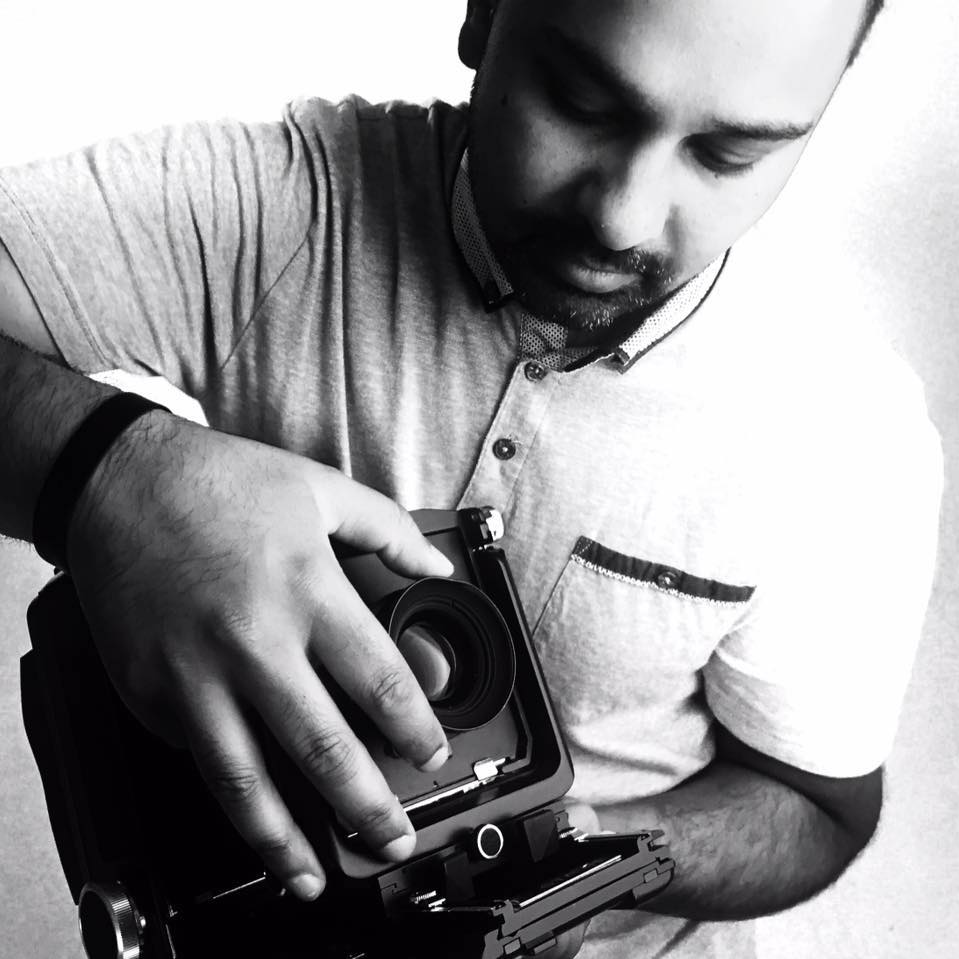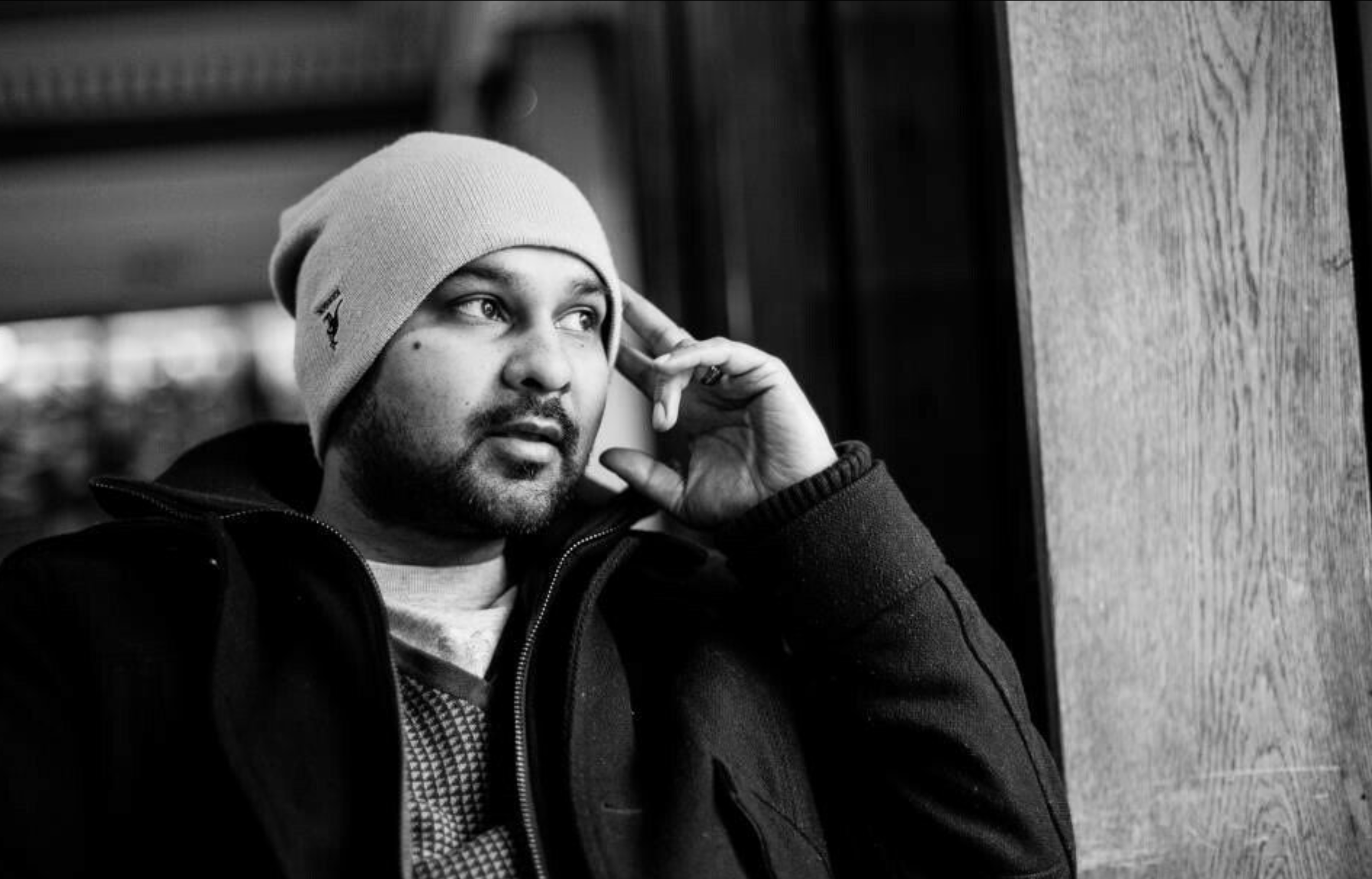Welcome to our Meet The Lecturers series, in which we sit down with some of our incredible industry-professional staff to learn more about their roles, their filmmaking background and their hopes for our students’ future careers.
This week, we’ve been chatting to Josh Rai, Head of Education at Screen and Film School Birmingham, as well as Course Leader for our BA (Hons) Filmmaking degree.
Outside of the film school, Josh is a writer, director and photographer who has worked across the arts, media and entertainment industry including the BBC and ITV. He’s also the Director of independent film agency Selfless Films, based here in the Midlands, and is currently in production with a documentary, developing projects to be pitched to C4, and writing a feature film as part of a slate of productions.
As the Head of Education and Course Leader at Screen and Film School, what is your teaching philosophy, and how do you implement it in your curriculum?
Screen and Film School has a set a value which lay the foundation for our course, and which I fully understand and embrace. To allow filmmakers to flourish, having the right culture is the first step. It’s this caring and nurturing philosophy, alongside an understanding of industry, which then feeds into our course and curriculum.
Our aim is to support our students in gaining skills in a comfortable environment, whilst helping them realise their true potential.
What are some of the most rewarding aspects of your role as a course leader, and how do you engage and motivate your students?
Seeing students succeed and develop as creative practitioners. To help engage students, I use a variety of resourcing, in consideration of diversity, and especially bespoke masterclasses. Guests are also considered in discussion and needs of varying film groups within my module.

What are the key skills and knowledge areas you emphasise in your courses, and why are they important for aspiring filmmakers?
Collaboration is a big factor, and learning how to communicate within their filming groups.
It’s also important for students to have the confidence to try out new techniques and experiment. Those students who research and look at a multitude of work and art, not just film, seem to develop quicker and are able to begin developing their own voice.
Can you describe a particularly successful student project that you have overseen? What made it stand out?
There was a graduation film where the students really took experimentation to heart. Their development from script to production gave them confidence to try out camera techniques that completed their story. The film really stood out amongst the others because of this.
What advice do you give to students who aspire to enter the competitive field of film and media production?
Follow your passion, and do not be afraid to try things out. Ultimately your passion and perseverance will help you to establish yourself within the creative industry. Consider developing your communication skills too, which you will have chance to improve during our spine modules. Communication is often undervalued; improving this can help your working relationships both off and on set, and help your team better understand your ideas and vision.

What challenges have you faced in your creative career, and how have you overcome them?
The biggest challenge when I began was wishing to just operate cameras and/or wishing to direct. I ended up taking any opportunity to get on-set which was the best thing I could do. This led me to work on various projects, from commercials, music promos, documentaries, theatre and back to film projects.
My knowledge and network grew incredibly by just shifting goals. That, ultimately, enabled me to shift back to roles I truly wanted to do.
What are some current trends in filmmaking that excite you, and how do you incorporate these trends into your creative projects and teaching?
I would say the advent of short-form content is exciting now. Many broadcasters are using short-form content on their video on-demand services, as well as platforms such as YouTube. Channel 4 is one such broadcaster, who I have pitched to for a short form series for their online channel.
How do your professional experiences, such as working with the BBC, ITV, and on various independent projects, shape your approach to teaching and mentoring students?
I would say it is not just working within the industry that has shaped my approach to teaching and mentoring. My whole outlook has been shaped by my curiosity and, in particular, art. Studying art – architecture, paintings, photography, literature, world cinema – as well as industry people and environments, helps to build your own voice and vision. This is what I like to share with my students, to fire their curiosity, and find work which they resonate with, and which inspires their own practice.
Are you interested in being a part of the new legacy at Screen and Film School Birmingham?
Sign up to one of our Open Days:
Find out more information on our courses by clicking below:



